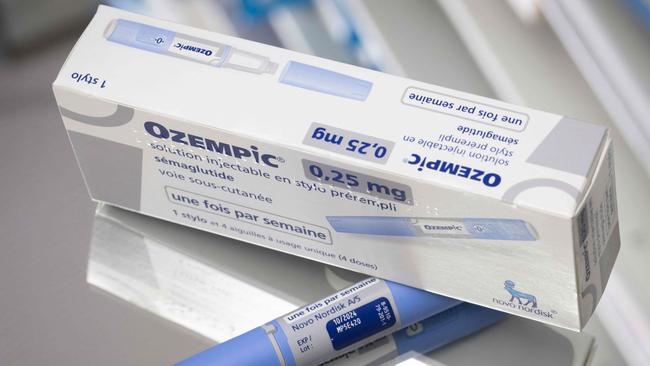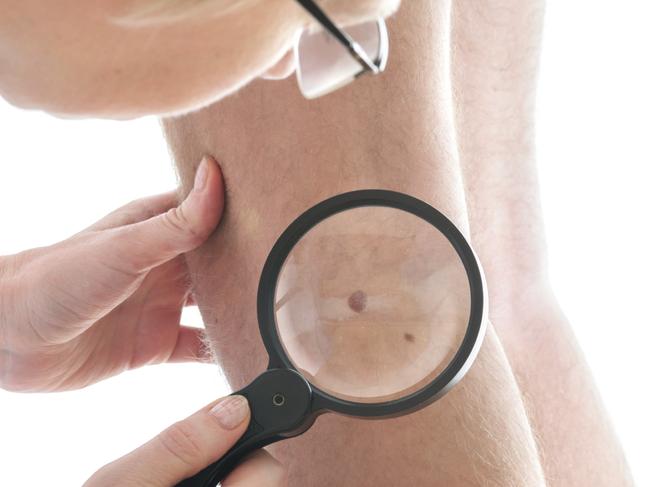Weight loss injections like Ozempic and Wegovy could halve risk of cancer, experts say
Doctors say it will be the “icing on the cake” if weight loss medicines can cut the risk of cancer and boost survival, after a breakthrough study.
Health
Don't miss out on the headlines from Health. Followed categories will be added to My News.
Weight loss drugs such as Ozempic and Wegovy could cut the risk of obesity-related cancers by a fifth and bowel cancer by half, lead experts say.
The revolutionary jabs have already been shown to reverse diabetes and slash the risk of heart attacks and strokes in some patients.
And now, several studies presented among 40,000 cancer experts at an international oncology conference in Chicago has raised hopes that the weight loss drugs could slash the risk of tumours and boost survival.
Researchers from Case Western Reserve University in Ohio presented their results which involved more than 34,000 obese patients. The study looked at 13 types of cancer linked to obesity, including breast, bowel and liver.
Patients who took GLP-1 medicines, like Ozempic and Wegovy, were 19 percent less likely to develop the disease over 15 years.
The jabs had the same impact on cancer risk as bariatric surgery, without requiring an operation.
And jab recipients shed significantly fewer kilos on average than those in the surgery group, suggesting the effect was not solely caused by weight loss.

“Obesity is a risk factor for nearly all cancers, in both men and women,” Dr Mitchell Lazar from the Institute for Diabetes, Obesity, and Metabolism at Penn Medicine in Philadelphia, said.
“Thus the revolution in the medical treatment of obesity has enormous potential to prevent new cancers, reduce the severity and growth rate of existing tumours, and synergise with new cancer-specific therapies.”
Another trial found breast cancer patients who took the class of drugs were a third less likely to be dead five years later.
However, Cancer Research UK’s chief clinician Professor Charles Swanton said more investigation is needed to prove the drugs’ benefits in reducing cancer.
“The link between obesity and multiple cancers is proven. While GLP-1 receptor agonists are effective drugs to manage weight loss, it’s still early days in our understanding of the drugs and whether they can reduce people’s risk of cancer,” Professor Swanton said.
“Well-designed prospective trials with randomised data will provide more clarity on the potential and safety of weight loss drugs to lower people’s risk of cancer.”
In Australia, the Therapeutic Goods Administration (TGA) has only approved Ozempic to be used for the treatment of diabetes and not weight loss.
The TGA have been contacted for comment.
HOW NEW LIFE-SAVING CANCER VACCINE WORKS
A new personalised mRNA-based vaccine against melanoma has almost halved the rate of cancer recurrence and death, clinical trials have confirmed.
When used in combination with the immunotherapy treatment Keytruda, the vaccine produced a 49 per cent reduction over three years in the rate at which the skin cancer returned or patients died.
Australian of the Year, Professor Georgina Long, a primary investigator on the study, presented the results of the groundbreaking trial to the 2024 American Society of Clinical Oncology annual meeting in Chicago.

Professor Long has previously described the vaccine, which is made by US pharmaceutical company Moderna and uses the same technology as its highly successful mRNA vaccines against Covid, as “the next penicillin moment in cancer medicine”.

The vaccine is personalised to each individual patient. To make it, the company takes a sample of the patient’s tumour, identifies 34 mutations specific to that tumour and builds a vaccine against them in a process that takes six weeks.
Every three weeks for a year, the patient receives an infusion of Keytruda and two injections of the vaccine after which their immune system is retrained to seek out the cancer cells and kill them.
Dr Kyle Holen, head of development, therapeutics and oncology at Moderna, said the results were promising and hailed the company’s collaboration with pharmaceutical company Merck.

“These findings reinforce our commitment to advancing this innovative treatment in collaboration with Merck, and we are dedicated to harnessing mRNA technology to potentially transform cancer therapy and improve patient outcomes,” he said.
The latest findings come after an early stage trial into the vaccine, which included 79 Australians, was conducted in 2022.
The early stage trial found that the vaccine produced a 44 per cent reduction in the rate at which the skin cancer returned or patients died.
Melanoma, the most serious form of skin cancer, is characterised by the uncontrolled growth of pigment-producing cells.
Australia has the highest melanoma rates in the world and the disease is often referred to as the country’s “national cancer”.
According to the Melanoma Institute Australia, it is expected that this year 16,800 Australians will be diagnosed and 1300 will die from the skin cancer.
More Coverage
Originally published as Weight loss injections like Ozempic and Wegovy could halve risk of cancer, experts say




